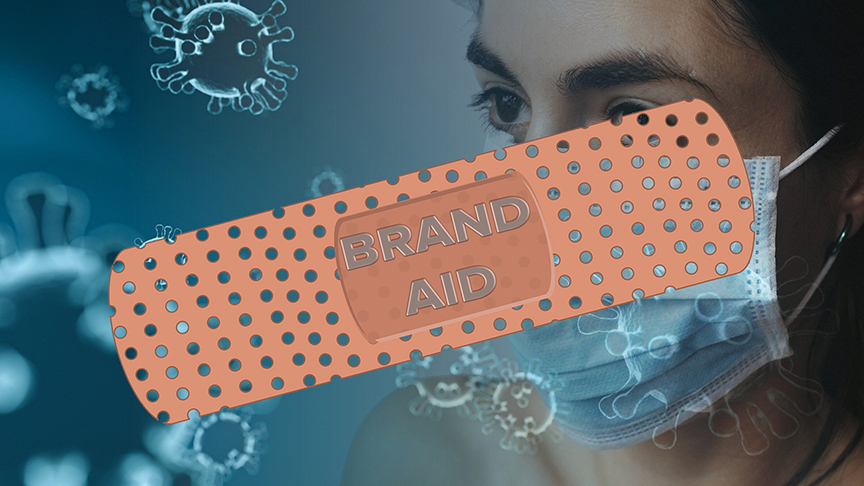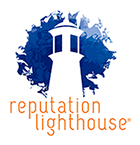- March 15, 2020
- Posted by: Reputation Lighthouse
- Categories: Communication, Crises Management, Innovation, Reputation

We’ve yet to finish the first quarter and already 2020 is one for the record books. Anxiety and fatigue are setting in for companies, consumers, and employees, as we all try to figure out what to do next, embarking on new territory that seems to be changing at the speed of light. This is “Who Moved My Cheese,” on steroids, and you are seeing how that is impacting society already.
As leaders, what you do now in the middle of chaos influences where your brand will stand in the future. This moment is where you can begin to architect your reputation, which is the difference between thinking not only in crisis and change management terms but also expanding your vision to a longer-term result of reputation building. It is essential to remember your mission, values, and purpose as you lead through the weeks and months ahead. Dust these words off and bring them to the forefront as you will need to rely upon them as you make upcoming critical decisions for your business and your stakeholders.
Four things happen in a crisis that are important for leaders to be aware of and be prepared to act upon with your leadership teams and stakeholders. Your mindset toward these outcomes can be critical to how your brand survives the crisis and comes out on the other side. The commonality of each is that communication is essential.
Crisis Exposes Gaps and Bad Behavior
Any disruption in the way you do business, especially in a crisis scenario, will expose all of your gaps and inefficiencies. It will also showcase those companies, and frankly employees and leaders, that talk a good game but aren’t delivering upon their promises. Many companies have been on such a growth trajectory that they may have some significant gaps that they weren’t aware existed. This is an opportunity to close these gaps and fix these issues while holding everyone in your organization to a higher standard. It may also be a matter of removing some barriers that are slowing down success and the ability to move with agility. In the next few weeks and months, you will be totally focused on supporting your employees, your customers, and your business. But, the sooner you close the gaps, remove barriers, and get the right people on the team with refreshed accountability standards, the better you will weather the storm and come out on the other side in the best position to recover faster.
Leaders Lead
As we see fear and panic spread across the globe; calming, trusted leadership voices are needed. Employees are more likely to have trust in their employers than anywhere else. (In the 2019 Edelman Trust Barometer, more than 71% of respondents said they were looking for leadership from their employer to respond to challenging times from issues regarding industry, political events, national crisis, and employee-driven issues.) But this also extends to all of your stakeholders — your customers, your partners, and your community. So, it is extremely important that your leadership team takes this responsibility to heart. Stay calm and communicate often with transparency and open channels of communication. Both expressing and demonstrating accessibility is important. This is new territory, and many will be figuring it out as we go. Also, don’t forget to share your expertise and thought leadership. Here is an opportunity to distinguish yourself from your competitors by sharing what you do best, how you are innovating, and how you think. Your customers are looking for partners to help them through difficult times, so don’t forget to share your knowledge and collaboration on solutions.
Innovation is Born
Sometimes customer demands are the cause of disruption, but in this case, the crisis is requiring us to think in a completely different way. Some newer disruptions like online grocery shopping, food delivery services, and telemedicine were already in place, but demand and preparedness are being tested. If you are in that business, how will this change your processes forever? And whoever thought we’d have drive-thru virus-testing centers? Will that be a permanent solution for flu, strep throat, etc.? Drug stores like CVS and Walgreens are looking at delivery of medicines, not a new idea but a revitalized one. This is your opportunity to innovate. How can you still deliver to your customers while keeping your employees safe? As social distancing is in place and people are self-quarantining, can you provide knowledge sharing and thought leadership through alternative methods? Can you utilize this time to talk to your customers, maybe conduct perception audits and surveys? Then create new ideas to better support their needs, perhaps accelerate or shift R&D. Can you look at how other industries are innovating and creating efficiencies and see what might work for your industry, cross-pollinating as you will? Can you provide your employees with much-needed training that no one ever has time to do? How about having those strategy sessions you keep postponing? And there is no better time to create and implement a risk assessment process? Can you share what you are learning with your customers so that they can innovate too?
Battle for Trust is Won
In times of crisis, trust and loyalty to your brand, almost for the lifetime of a stakeholder, can be earned or lost by the way you handle the adversity. Back to the Edelman Trust Barometer…the 2020 report highlighted trust being heavily tied to competence and ethics. This battle can be won as simple as this – deliver a good product or service, do the right thing, and communicate with honesty and empathy.
As the world is in chaos, understanding these four outcomes and being able to embrace them and adjust can be the beginning of architecting your reputation. Staying close with your stakeholders through a stabilizing, inside-out communication strategy that is anchored with a transparent and empathetic dialogue will create long-term equity for your brand.
Please visit our COVID-19 Resource page for curated information concerning brand and reputation during this time.
